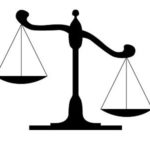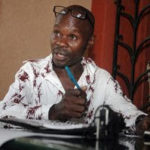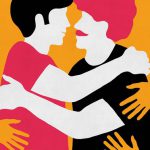Kenya’s Gay Underground
"Homosexuality is prohibited under our country’s laws and is morally unacceptable in our society,"
immigration spokesman Frank Kwinga explained.
"We shall not allow these people to come and teach our people bad manners."
This is what LGBT Kenyans face as they search for real love in a hostile culture.
Also see:
Gay Kenya Stories
Gay Kenya News & Reports 1998 to present
Gay Kenya Photo Galleries
News24.com http://www.news24.com/News24/Africa/Features/0,,2-11-37_1885943,00.html
February 22, 2006
Being gay in Kenya
Nairobi – Chinese stir-fry sizzles on the stove and lively conversation crackles between the three friends gathered round a table on a Tuesday night in Nairobi.
It’s a run-of-the-mill dinner party but many Kenyans would say it is not a typical one.
"I’m not afraid, but I’m not going to tell someone, ‘hey, I’m gay’," says Alex, 31, a marketing consultant.
Stirring coconut milk into rice cooking on a glass-topped stove, Alex, who comes from a conservative Muslim background, says there are not many places to meet gay people and talks excitedly about wanting to open a gays-only bar.
"There’s no gay anything here," he says.
More like ‘gay death’
"It’s more like gay death, not gay life in Nairobi."
The three friends eating in the tiny kitchen are members of an unrecognised and stigmatised minority in Kenya. Keeping a low profile is their way of handling the isolation.
While debates in developed countries rage over same-sex marriage, in most African countries gays and lesbians suffer from more basic concerns – the right to choose how to live.
Homosexuality is outlawed in many African countries, including Kenya, and is often condemned as being "un-African" – a ‘disease’ imported from the West. In some traditional beliefs, homosexuals are said to be cursed or bewitched.
"Homosexuality is against African norms and traditions, even in religion it is considered a great sin," former Kenyan president Daniel Arap Moi once said.
"Kenya has no room for homosexuals and lesbians."
In Cameroon this month, tabloid papers published names and photos of allegedly gay politicians, businessmen and musicians in what editors said was a crusade against "deviant behaviour."
African bishops led by Nigerian Archbishop Peter Akinola mutinied last year over the issue of gay Anglican clergymen.
Only South Africa, whose constitution was the world’s first to enshrine equal rights for gays and lesbians, bucks the trend. In December, its top court ruled it was unconstitutional to deny gays and lesbians the right to marry, paving the way for it to become the first African country to legalise same-sex marriage.
Double lives
Though rarely enforced, punishment in Kenya for gay sex is five to 14 years in jail. Sex between women is not mentioned in the law. The gay Kenyan men interviewed by Reuters asked to have their names changed, citing potential family and work problems.
"I don’t want my parents to know something that will end up hurting them," Alex said.
Many in Kenya say they live closeted lives because they risk being disowned or fired if their family or bosses find out.
"People live double lives here. There’s a life you live with your straight friends and the life you live as a gay person," says Jeremy, the co-ordinator for Galebitra, a local gay and lesbian rights organisation.
"We are vulnerable, we are neglected, and we don’t have any visibility," he adds, speaking softly in the upstairs part of a hamburger bar in downtown Nairobi. Jeremy says he comes to the restaurant because it is more "gay-friendly."
Tall and lean, Jeremy slouches and says, almost whispering, "Without massive protest and gay people coming out, standing up for what they want, the government will continue disowning us."
He says if one country in East Africa opened up, it would clear the way for the surrounding countries to follow. "The situation you see in Kenya is the same for East Africa. If our country can open up, it’ll be a big breakthrough," he said.
Homosexuality ‘unAfrican’?
According to Behind the Mask, a South African-based gay and lesbian rights group, laws prohibiting homosexuality exist in most East African countries except for Eritrea and Rwanda, where there are no laws specifically banning homosexuality. Punishments range from a few years in prison to death.
Last month in Nigeria, the government gave initial approval to a draft law which would ban homosexuality and same-sex marriage. The bill would make homosexual acts punishable with five years in prison and outlaw gay groups and rallies. It has yet to be approved by parliament.
On a continent with many Western missionaries and still-flourishing animist beliefs, religion plays a major role in shaping public opinion, especially in rural areas.
Around three-quarters of Kenyans are Christians. The Catholic Church and the Protestant churches in Kenya, including Anglicans, condemn homosexuality as sinful. In Islam, the Qur’an forbids homosexual acts.
A poll in Kenya last year showed that 96% of respondents viewed homosexuality as being against their beliefs.
Illustrating the social prejudices, opposing sides in Kenya’s constitutional referendum last year accused each other of wanting to legalise homosexuality.
"Homosexuality is not an issue (the authorities) particularly want to get involved with," says Mwangi Githahu, a journalist with the influential Nation newspaper.
He said most Kenyans did not want to talk about homosexuality. "The law and everybody else pretend it’s not happening, they just don’t want to know," he added.
"There’s this crazy idea out there that homosexuality is un-African. Where that came from, nobody really knows," he says.
Back in the restaurant, Jeremy argues that there are many different kinds of traditional family structures in Africa and asks why same-sex relationships cannot be part of that.
"There’s a lot of talk about family values. In Africa, family unions are very important," he says.
"Emotional values are part of same-sex unions. We share the same family problems … but if you don’t talk about it then it becomes a silent killer."
From: The East African Standard (Nairobi)
September 4, 2004
Gay in Kenya
In Kenya, a clause on sexual freedom in the draft constitution raised a storm when it came up for debate at Bomas of Kenya last year.
That the clause was included is in itself telling as it suggested the existence of a gay ‘community’ in the country. Acting on this assumption, Society’s Tony Mochama went behind the veil of secrecy under which homosexual relations are conducted and discovered a vibrant world of same-sex romance.
On a deck chair at the poolside bar of Nairobi’s Serena Hotel, a dark Kenyan man sits sipping a daiquiri from a wide-rimmed wine glass. He is waiting for his date, all the way from Belgium.
"We met on the Internet – and fell in love,"says Levin as his dark face flashes a wide white smile. He is dressed in a tuxedo and fashionable spectacles, and a loud ring glints from his middle finger. Opposite the flamboyant 24-year-old man – who looks six years his own senior – is his best friend, 28-year-old Katie, who works for a travel agency in Nairobi. She is his camouflage.
Presently, Levin’s cell phone rings. He excuses himself and heads off to go and give some room service. Not that he is a waiter.
Paddy DeVant, a man who possesses that unique British knack for snide remarks, reveals that Levin is a kept man for a United Nations diplomat in Nairobi "who adopted" him when he was 16, and paid his mother in Nyanza a tidy sum to become his official guardian.
DeVant, himself a homosexual, theorises that Levin is not the genuine article. "Levin isn’t a natural gay," says DeVant, a green hue of resentment streaming over his tongue.
Levin is black, kept and yet a jetsetter, forever in the air to Brussels, Copenhagen, Amsterdam and Paris to meet white, gay men – all this on the UN diplomat’s cash.
The diplomat must suspect something? But he is too diplomatic, too old, too scared of Levin leaving him to complain, Katie later reveals.
Levin looks more of a Yuppie metro-sexual than the dandy homosexual. But he isn’t in the least bit shy about flaunting his homosexuality.
Katie, waits for DeVant to go to the cloakrooms, then says: "Levin is alright. Paddy is just jealous ‘cos Lev dumped him after a short affair."
As it is among the straight, so it is in the world of gay men. The emotional gem, the green eyed monster, is never far away.
Levin is "married" to a UN honcho, but is the globally unfaithful "wife". Devant was jilted and so is jealous. So, what is Katie’s role? "She’s a fag hag," explains a male columnist tagging along.
Fag hags are a new phenomenon in town: well turned-out women from their late 20s to early 30s who enjoy hanging around, and being friends with, gay men. "You can’t discuss homosexuality without discussing fag hags,"the columnist says.
Katie apparently enjoys hanging around Levin not just for the novelty of it, but because he’s so dandy she can be the envy of other women on the social and cocktail circuit in town.
Although the weird still exist, many modern gay men are also metrosexual – slick, sleek men who care about their appearance. Their women friends act as red herrings, to throw off the scent of detection as they exercise their rights of freedom of movement and association.
Does Katie mind being in her role? "Hell, no," says she. "Levin is fun because he can read both my and my boyfriend’s barometer. He’s emotionally bi-sexual like that (as are a lot of gay men)," she giggles. "He’s also physically impossible to get – I tried at first, so I can trust him, unlike other straight guys, who still want to sleep with you. Only ugly girls can have straight, male pals," she adds.
Worlds Apart
DeVant, on the other hand, doesn’t seem too successful. He does not have a dainty, attractive female companion on his arm, and the five-star Serena is not anywhere near his league. He seems more comfortable while helping this writer round the noisy midtown restaurant and beer garden, Simmers.
Paddy DeVant is the one who will open the door to the gay closet, where homosexuals have retreated and closed themselves in – fearful of coming out into the open. Shut off from ordinary public channels "to express our affection for whomever we choose to love" as DeVant puts it, the homosexual/gay community mostly remains invisible behind the straight facade of mainstream heterosexuality. Like a stream running crookedly underground beneath plain terra firma.
Like all groups that feel marginalised, the city’s gay community is both a close-knit and underground lot, paradoxically operating in the open but with some secrecy, like eyes behind sunglasses.
At Simmers Bar and Restaurant, above the din of the Congolese band playing old numbers from the 1980s, the man DeVant leads us to is a shy guy with a girlish smile and coy manner. He is from Los Angeles, and over lunch, he gives a view of the way homosexuality thrives in the United States, and indeed in most of the liberal Western world.
"Gay men in America are a minority – maybe 10 per cent but we are a very vocal minority," Guy says, so softly it is hard to imagine this smart pianist being vocal anywhere. "Some people, especially the George Bush neo-Christian conservative types, dislike us, but we are part of the American scene."
Guy gives an example of the Los Angeles Gay Day Parade, and the right in San Francisco to get married to a "same sex" person. (Note: The California State Court decided that City Hall does not have the jurisdiction to award marriage certificates and nullified those who werre illegally marriedin SanFrancisco.)
"In San Francisco," says Guy, "I can freely hang out with my boyfriend Harmann (yes, he’s German) and our (gay couple) buddies Bradley and Gordon. We can dance intimately at Saints – (a gay discotheque) – while here in Kenya, other than some place in Mombasa, I feel we are on the fringes."
"Fringes my grandma’s tushi," DeVant bursts out. "What you mean, my good guy, is that we are always sneaking around."
When speaking of "normal sex", everything is as said and understood. For heterosexuals, society simply says they fall in love, get married and have children. But when it comes to describing less conventional attachments, people speak in terms like "twisted" and "perverted," vulgarising less conventional relationships with allusions, euphemisms and analogies such as "he is fond of little boys", "he forms indiscreet liaisons with men" or the blunt crudity of "he’s a bugger!"
As one straight man says: "God hates homosexuals, and they can burn in hell as far as I am concerned. In fact, if I knew one, I’d lynch him myself."
DeVant, who describes himself as "100 per cent British and 110 per cent gay", is neither effete nor effeminate on the face of it – but his sneaking glances have something of the effete about them.
DeVant next goes to the Norfolk Hotel for an early dinner with yet another gay man, this one in his mid 30s, whom we’ll call Ben Odumbe. Ben is a tall, bespectacled, American-trained pharmacist with a wicked sense of humour – and infected with HIV.
Ben casually takes out an assortment of medicines, including AZT, and places them on the table, attracting a few curious glances from dining guests nearby."Cocktail," Ben says casually. "Bon appetit," Devant offers.
Ben, it later turns out, is one of the few openly active homosexuals about town, in the sense that he is a passive activist who, while not shouting from the rooftops, will not hide his dual conditions in any closet. "There is a stigma against gay people in this town, and there is a stigma against HIV positive people generally," he states, "and it is all wrong."
How did he get infected? "Took a trip to Bangkok, Thailand, in 1999 to usher in the New Year," Ben says.
Gay men are five to 10 times more vulnerable to HIV/Aids because anal sex creates fissures that provide easy access for the virus. In America, almost all the first 400 cases of Aids (389) involved homosexuals between the spring of 1982 right through to the fall of 1983, at first leading people into calling it "The Gay Plague" – with fanatical preachers gloating that "God was punishing the wicked," before HIV burst the banks and rushed into the heterosexual population, as a wolf unto sheep.
"All of life is a risk,"Ben says philosophically, "and I made my choice. Besides," he adds lightly, "everyone is gay. People just refuse to let the little fag inside come out."
Ben then goes into stories of how there are many married men for whom the marriage is a front to disguise their homosexual yearnings. The thought that there are many people in gay liaisons seems to comfort the two men – one black, one white. Wasn’t it Renaud Camus, the French writer, who said with verve that "homosexuality is always elsewhere, because it is everywhere"?
Dancing in the dark
Opposite the Norfolk Hotel, the silhouette of the Kenya National Theatre looms quietly in the after-dusk light. In 1996, Tony Kimani put up a production of the play, Cleopatra, to ostensibly "try to sensitise the public on the Gay Dilemma as natural, and bring the discussion out into the open". Cleopatra, as a play, was okay – but its theme was not accepted.
Watching the Kenya National Theatre in the shadows of the night, it is clear that in Kenya, at least, the gay community will still have to dance in the dark, operate in the underground, lie low like evening’s shadows.
Gay bars, or open social places for homosexuals won’t be coming any time soon – not even to a cinema near you, and they will still have to operate on the periphery of society. A client of Gypsy’s in Westlands put it most eloquently, recently. "Thank God this place regained popularity because the homosexuals have gone."
"Where to?"
"Sodom and Gonorrhoea, maybe," and laughed. Actually, they just broke up into smaller groups and scattered into nearby clubs – Havana, Soho, the Crooked Q …
Socially, it seems, the Kenyan gay man is a gypsy – nomads forever condemned to shifting from place to place, leaving sniffles and scandals in their wake.
















